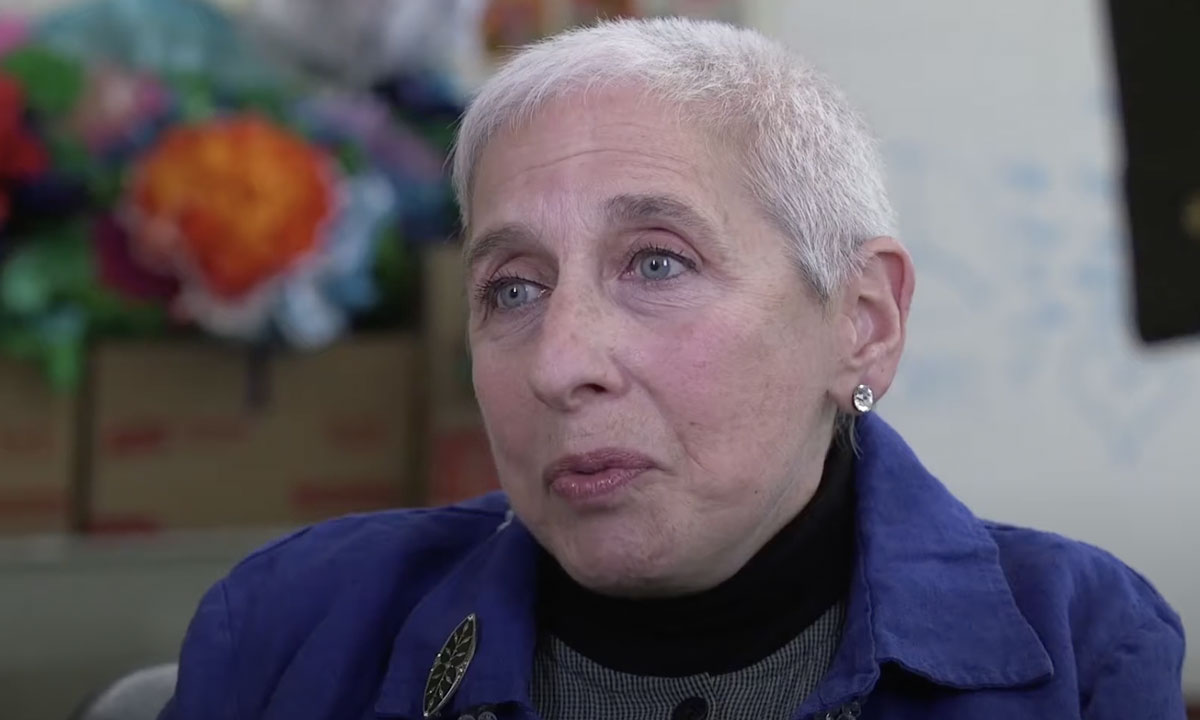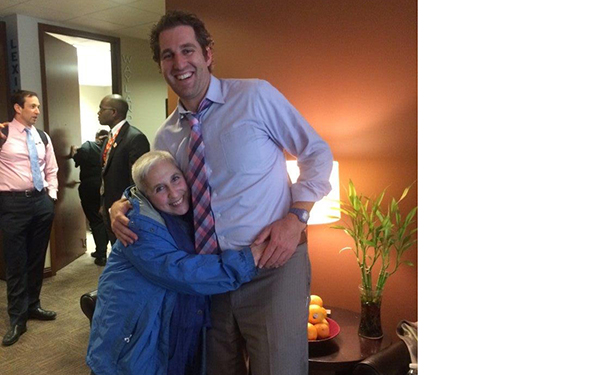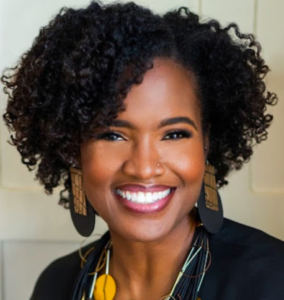The ‘Godfather’ of Top Charter Schools: A Tribute to the Late Linda Brown
Brown, 81, who defied demographics as educational destiny by launching countless high-performing charter schools, died on Christmas Day.

Get stories like this delivered straight to your inbox. Sign up for The 74 Newsletter
The woman who was arguably one of the most influential U.S. educators in decades died on Christmas day in her home in Cambridge, Massachusetts, at the age of 81, with her fingernails freshly painted bright red — as always.
That would be Linda Brown, who tried very hard to remain private, and succeeded. To date, there has been just a single obituary that does not truly capture her far-reaching impact.
Why argue that Brown was such a major figure in the American education sphere?
Because Brown and the fellow educators in her tight circle demonstrated that demography does not have to determine destiny. That’s not what we hear from most school superintendents and teachers union leaders, who maintain that while they do their best to counter the headwinds of poverty, success is impossible.
When viewing education data on a macro level, the traditional educators are right: Poverty does drive outcomes. But on a more modest scale, where Brown operated, the many high-performing charter schools she helped launch around the country through her Boston-based Building Excellent Schools, known as BES, showed the opposite.
Just a quick example: At Uncommon Schools, which operates 53 schools in New York, New Jersey and Massachusetts, 58% of their graduates earn bachelor’s degrees within six years. That is just one percentage point lower than the college graduation rate for students from families in the top income quartile. (Before the pandemic, Uncommon’s college graduation rate reached 72%.)
Yes, it is possible. That kind of success requires relentless innovation and persistence. But it’s possible.
If Brown hadn’t been an advocate for charter schools, which are despised by teachers unions and disliked by many progressives, her passing would have been front page news.
Among charter insiders, she was called the godfather of the top charters, a nickname she both hated and loved. The first time I profiled Brown I called her the grandmother of the elite charters. She hated that and let me know! Clearly, godfather was the better fit.
(You can see and hear Brown talk about her work in a previous interview with The 74)
The BES fellowships designed by Brown started with a year touring top charters and designing your own school, followed by a second year preparing to open that school. Often BES would invest directly in the new school.
“There are so many people who say Linda changed the direction of their lives,” said Brett Peiser, now Uncommon’s co-chief executive officer. “I was one of those people.”
Peiser’s first charter school, which eventually led him to Uncommon, never would have happened without Brown’s tough-minded assistance, he says.
Uncommon is just one charter network of many that Brown had a hand in. And then there are all the high-performing “sister” charter schools that fellows visit to learn their secrets. In that way, they become part of the BES network.
Finally, there are the education leaders who rose to national prominence out of that Linda Brown world. Just two examples: former Education Secretary John King (Roxbury Prep) and Teach Like a Champion author Doug Lemov, a pioneer of several charter schools.

“It’s so easy to let school formation be about the ornaments on the tree and not the tree itself,” Lemov wrote when asked about Brown. “Linda was always about the things that mattered — real achievement and learning — and she never accepted cheap substitutes.”
Added Lemov: “It’s easy to underestimate how hard it is to introduce school choice to a place and to make sure there is the proof point of a school with real quality — radically, not just marginally, better — to reset people’s expectations for what is possible. And she did that over and over again.”
At a little more than 5 feet tall, she had furious energy and famous impatience. Each day, after arising around 3 a.m., she would check her phone to see if any new applications for fellowships had arrived.

Immediately, or just after opening a Diet Coke, Brown would devour the application, still in her PJs.
“If she wanted someone, she would look at her watch and see it was only 4:30 in the morning,” said her BES partner Susan Walsh. “But by 6 a.m. she would call them, even though they might have submitted the application at 11 p.m. the night before. She would tell me, ‘If they are people who do things, they should be up.’ And then, when she talked to them, if she liked what she was hearing, she was simultaneously checking flights to Boston, and would say, ‘I see a 1:30 flight; let’s meet today at 3 p.m.’ She moved!”
Just for context, this was for a fellowship that at the time was hyper-exclusive: the acceptance ratio for the dozen awarded each year was 2 in 100.
One of those applicants surprised by an early morning call was Shantelle Wright. She had never heard of a BES fellowship until reading about it in a brochure and was astonished. You mean they pay you to do what I desperately want to do, she thought. She finished her application at 5 p.m. and, with a prayer, pushed the send button.
Brown read it first thing the next morning. It was a 13-page, single-spaced essay on what Wright wanted to achieve with a Washington, D.C.-based school. “This essay was on fire,” Brown told me in an earlier interview. “She talked about how the vast Black/white school achievement gap is not only a Black person’s problem; this is also a white person’s problem. Why can’t we have decent schools east of the Anacostia (the poorest neighborhoods in the District)?”
At 7 a.m. the next morning, Brown phoned Wright at home. Says she woke her up: When can you be here?
Wright: When do you want me?
Brown: Can you be on the next shuttle to Boston?
Wright made the 9 a.m. shuttle and sat down with Brown for a long talk. At the end, she was offered a fellowship. To complete a long story in a few words, Wright founded the successful Achievement Prep charter in Washington, ended up on the BES board of directors and went on to other education achievements.

“This woman single-handedly changed the trajectory of my life,” Wright posted after Brown’s death. “I do what I do and fight like I fight because of her. Her belief in what was possible made it reality for me!”
Wright’s story is one of scores like it: fellows who spread out across states to launch their own schools after visiting and studying the best charters in the country.
There are many charter schools around the U.S. that are mediocre, hardly better than nearby traditional schools. And there are some that are worse than the traditional schools and warrant closing. And then there are the charters launched by Brown and BES that usually show what’s possible when true innovation is allowed to blossom.
Said Brown in an interview with The 74:
“Some folks from the West Coast would use terms such as ‘Let a thousand flowers bloom.’ We looked around after a year and a half and saw that a thousand flowers had bloomed there and, in fact, they weren’t all good. And we thought there it was. If you let a thousand flowers bloom, you’re going to have some bad ones, some good ones, some moderate ones and a few great ones.”
It was in Massachusetts that we were able to say we weren’t going to have a thousand flowers blooming. That being able to start a charter school by meeting Sunday after church, putting together a kind of helter skelter application, getting authorized, and then saying, ‘What do we do now?’ wasn’t enough. Because we were in the business of changing people’s lives, young people’s lives, and in some instances, very young people’s lives. We took that as our mission.
“The other thing we took as our mission was that we could be the people who chose the people to start charter schools. And that was really the birth of Building Excellent Schools.”
Since 2001, BES has selected and prepared more than 2,500 educators who went on to found more than 200 schools in 50 cities and 20 states.
Some examples by region (a long, if still incomplete, list):
- In Massachusetts, BES fellow-founded schools include Salem Academy Charter School, Excel Academy Charter Schools, Phoenix Charter Academy and Advanced Math and Science Academy Charter School.
- Sister schools in Massachusetts (schools that fellows visit to study) include Brooke Charter Schools (“Linda always said we should be a BES school,” said founder Jon Clark), KIPP Lynn Academy and Roxbury Prep.
- In Rhode Island, RISE Prep Mayoral Academy.
- In New York City, there’s South Bronx Classical Charter School, Democracy Prep, Leadership Prep, Forte Preparatory Charter School, Legacy College Prep, Creo College Prep, Valence College Prep Charter School, Brooklyn RISE Charter School and BOLD Charter School.
- In Buffalo, there’s Buffalo Creek Academy Charter School, Persistence Preparatory Charter School and Primary Hall Preparatory Charter School.
- In Washington, D.C., there’s Achievement Preparatory Academy.
- In Ohio, the United Schools Network.
- In Nashville, Tennessee, there’s Purpose Preparatory Academy, Nashville Classical Charter School, Intrepid College Prep Schools, Liberty Collegiate Academy and Nashville Prep, which merged to form RePublic Schools. In Memphis, there’s Freedom Preparatory Academy, Memphis Rise Academy, Beacon College Preparatory, Memphis Merit Academy Charter School and Aurora Collegiate Academy.
- In Texas, there’s Compass Rose Academy, Houston Classical Charter School and Etoile Academy Charter School.
- In Chicago, there’s Great Lakes Academy Charter School.
- In Louisiana, Laureate Academy Charter School and Elan Academy Charter School.
- In Indiana, Circle City Prep and Allegiant Preparatory Academy.
- In Nevada, Nevada Rise Academy and Nevada Prep Charter School.
- In California, Equitas Academy Charter School, Mission Preparatory School, Valor Academy (joined Bright Star Schools) and Cornerstone Academy (joined Alpha Public Schools).
- In Colorado, University Prep.
Did Brown’s remarkable achievements reform American public education? Sadly, no.
Despite the consistent gains demonstrated by charter networks such as Uncommon — pushing up students’ college graduation rates to match their high-income peers — traditional education leaders focus more on driving charters out of business than adopting their hard-learned lessons for success.
Even in Massachusetts, which boasts several of the nation’s highest-performing charter schools, the powerful teachers unions there have easily beaten back charter expansion.
But those setbacks would never phase the indomitable Brown, whose feisty disposition, sharp wit and bright red fingernails — freshened regularly by a manicurist who visited her home in her last days — made her someone you never forget meeting. She was too busy hurrying along trying to achieve her lifelong mission: proving that when it comes to educating children, zip codes shouldn’t matter.
“Winning is about academic achievement,” Brown told The 74. And by that standard, Brown, whose family is planning a celebration of her life in August on her birthday, emerged the winner.
Get stories like these delivered straight to your inbox. Sign up for The 74 Newsletter

;)
